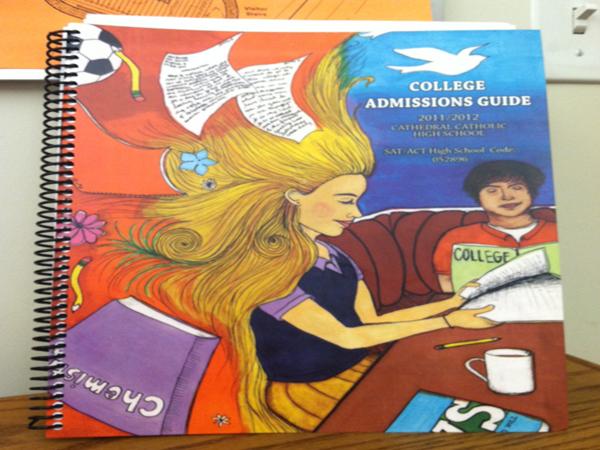The time has finally arrived – junior students are beginning their search for colleges. To begin this process, these students are required to meet with their school counselors and discuss possible college options. Considering grades, extracurricular activities, and scores on standardized tests such as the ACT or SAT, their search may become more stressful than ever before.
At Cathedral, six academic counselors advise around 300 students each. These counselors review each student’s achievements and suggest possible college options. The Cathedral community also brings colleges directly to the students at fairs. Around 80 colleges visit Cathedral each year, and the school boasts a college fair larger than even that of the Poway Unified School District.
During the meetings, the student counselors give the students a variety of tools to help them search. A yellow sheet is filled out to consider grade point average (GPA), extracurricular activities, athletic potential, and traits that may help the student boost college resumes.
Students also receive a special college handbook. The colorful book describes what counselors want the students to know, but in further detail. This book contains key advice that counselors may have been unable to cover in their individual meetings.
With these tools, it seems that juniors may have a clearer idea of what colleges they may want to apply to. Yet, Counselor Mr. David Silva warns of certain outlying factors that may make the process even harder.
Mr. Silva said that some students seek outside of school counselors. Students, he said, will look for tutors who may, though not deliberately, give them bad advice. Some out-of-school tutors claim experience in the college admissions process when, in reality, they have hardly any experience.
Mr. Silva named a few examples of parents who tutored students based on their own children’s successful college acceptance, without any actual training. These tutors may give students false information. Mr. Silva said, “The biggest problem is people trust some of them”
What makes some out-of-school counselors defective, according to Mr. Silva, is that they tell students what colleges they can or can’t get into, advise them to apply at bad times, or do not always suggest the “best fit” colleges. When he says “best fit,” he means a college that is most likely to please a student based on his or her personality.
Mr. Louis Centanni, another academic counselor, said, “In every profession, there is good and bad.”
He said that out-of-school counselors are able to council without previous experience. As long as they are out of school, no real experience seems to be required.
“Parents want to cover all their bases with their kids, that is from a parents point of view.” Mr. Centanni said.





















































